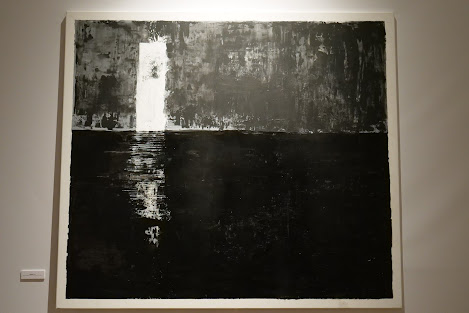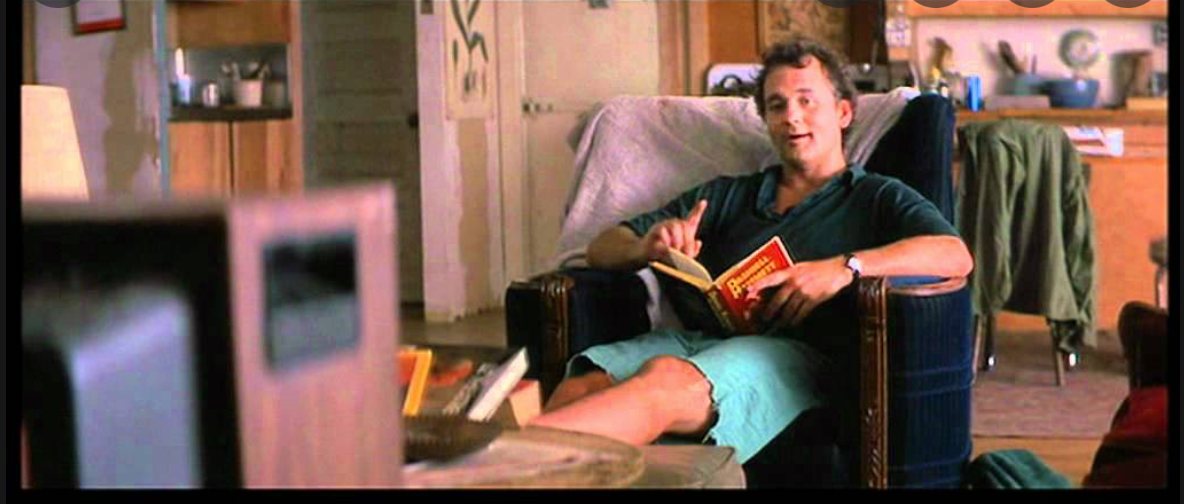I approached “EO” with two preconceived notions. The first was an awe of Skolimowski as a painter and a filmmaker. In this order. A few years ago I saw the exhibit of his mostly large format works from which comes the image above. I am also a big fan of his early films, a wonderful burst of cinematic energy.
The second notion comes from many failed attempts to watch Bresson’s “Au Hasard Balthazar.” Contrary to many opinions by great masters of cinema that movie have kept me cold. I don’t even think I managed to watch more than a half of it. I tried several times. Something is clearly not right with my perception of this classic.
Anyway, here comes “EO”. I go to a movie house and I am floored, moved. Even shocked at times. Great film. It beams with freshness, audacity and smarts. I felt I was dealing with a painter who communicates feelings and sensitivities rather than anecdote. The feelings were of a non-human entity, of a donkey. Or was it really a donkey? Was it something we don’t know much about and can only guess its ways of perception? But wait, are we sure of our own ways of perception? Do we really know what we truly experience and sense once we put aside a heavy armour of social pressures, cultural laziness and our own physiological and mental limitations? Watching “EO”, I felt I was exposed to a way of perceiving the world different from mine. Upon second thought: how different it was? Are we really in full emotional control of the events around us? Do we really understand what’s going on? Is our grasp on our existence coherent? Are we in control? Or perhaps we are just as lost and confused as the donkey in “EO”? Perhaps the unclear ways in which the story unfolds corresponds really to our own paths in life, which we desperately try to turn into a coherent narrative, in vain, most of the time.
The “how to” manuals in narrative storytelling present two ways of telling a story: though anecdote or through character. A classic Hollywood formula in which action is the character in its best blends the two approaches, but there is a yet another possibility and that is ….sensitivity.
This is what Skolimowski does in “EO”.
Some sneered at the “EO” as chaotic, unfocused and shallow in its critique of modern life. They attacked the film on three points: that it’s about “everything” and is “all over”, that its callings for love of nature and animals are banal and that it’s all done with too much “pathos”.
Perhaps those critics look in cinema for stability and comfort, for pure entertainment. For the familiar storytelling since the Aristotle, that prevails and shapes our travels in the universe, the familiar which makes our existence bearable but is still not reflective of how things are. In reality everything is a mystery beyond our comprehension. Yet, we endure, we yearn, love and withstand the blows of fate using model storytellings as blindfolds.
Perhaps our nervous system is really more like the narrator in “EO”, who just feels, is surprised, elated, shocked, amazed.
If one sneers at “the message” of EO, I would just quote an old Hollywood wisdom attributed at times to Frank Capra or Samuel Goldwin: “If you want to send a message, try Western Union.” Or put it differently if you seek a message in a film you’re missing the point. Not that there are no messages there but that’s not why film are what they are.
Then there is an accusation of “pathos”. Well how intense is your (inner) life? What’s the amplitude of a soul that is trapped, confused, misunderstood? How would you present the inner life of something (somebody) marked for death? Bless your heart if you don’t scream once you wake up and realise how tragic (your, his, its) existence is.
Which brings me to Robert Bresson. After the encounter with the film that is a take on “Au Hazard Balthazar” ("Balthazar, at random”) I attempted to watch the original again. No go. Frustrated I reached out for “Pickpocket” and voila! Suddenly I got his strive to bypass the stiffness of storytelling and to get to the inner life of a character. Then came “L’Argent“ (“Money”), which again presented itself as a masterpiece in exploring the internal while making statements about society. All done with restrain, ellipses, unorthodox rhythms of shots. The narrator was telling the story of feelings while engaging my mind in a precise and abstract manner. That’s a very difficult thing to pull off.
Having watched those two films of Robert Bresson I realised that Skolimowski is not only re-telling a story of a cute and lost in the world donkey. He’s also riffing on the bressonian approach to the inner life of a character. He does it his way of course. Then there is the episode with Isabelle Huppert - seemed weird at first but then it hit me that it was a very bressonian detour. Which wasn’t a detour at all. The donkey was there. Additionally this episode somehow feels close to what Bresson did in ”L’Argent”.
Bresson said that the cinematographer has great potential but very few practitioners. He did this film at the age of 83. Youthful Skolimowski (when filming “EO”, also 83) with all his energy, raw nerve and audacity he is perhaps just entering his next creative phase. Perhaps through his courage and abilities the medium may open up in its sensitivity and narrative freshness. Which is what Robert Bresson envisioned.
I am still to watch "Au Hazard Balthazar".


